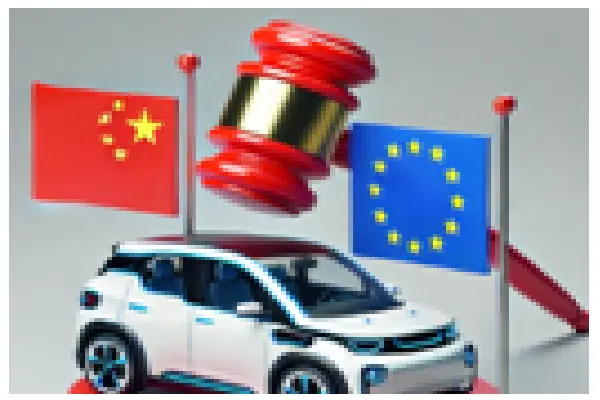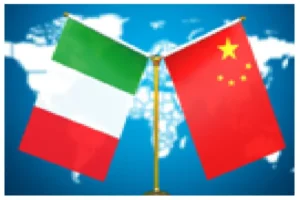China Slams EU Tariffs on Electric Vehicles, Files WTO Complaint.

China, Beijing – Chinese officials, industry groups, and automakers on Wednesday sharply criticized the European Union’s decision to impose countervailing tariffs on electric vehicles (EVs) imported from China, calling for urgent talks to avoid an escalation of trade tensions.
The Ministry of Commerce (MOFCOM) announced that it had lodged a formal complaint with the World Trade Organization (WTO) over the EU’s ruling, while Chinese automakers have also vowed legal action in European courts to defend their interests.
The dispute centers on the EU’s move to impose tariffs ranging from 17% to 35.3% on Chinese EVs, a decision that took effect Wednesday after being published in the EU’s Official Journal. The European Commission, which initiated an anti-subsidy investigation into Chinese EVs, said the duties would last for five years.
China Denounces Tariffs as Protectionism.
Beijing’s response was swift and forceful. In a statement, a MOFCOM spokesperson rejected the EU’s ruling, describing it as unfair and protectionist. “China will continue to take all necessary measures to resolutely safeguard the legitimate rights and interests of Chinese enterprises,” the statement read.
Chinese officials also accused the EU of undermining global competition while disguising its protectionist measures as efforts to promote fairness. Lin Jian, a spokesperson for the Foreign Ministry, said in a briefing that the tariffs would harm China-EU industrial cooperation, hurt European consumers, and hinder the EU’s green transition efforts.
Legal Battles Loom.
Several Chinese automakers, including SAIC Motor, which faces the highest tariff rate of 35.3%, have indicated they will pursue legal action in the EU’s Court of Justice. The China Chamber of Commerce for Import and Export of Machinery and Electronic Products (CCCME), representing the nation’s EV industry, condemned the EU’s move as “unobjective and discriminatory.”
“The CCCME will continue to guide companies through price negotiations and employ all legal means to protect the legitimate rights of Chinese companies,” the organization stated.
In addition to the WTO complaint, the China Association of Automobile Manufacturers publicly backed the government’s legal challenge against the EU, vowing to support Chinese companies facing these new tariffs.
Impact on European Trade.
The tariffs have sparked concern among some European business leaders, particularly those in Finland, who worry about the potential negative effects on trade with China. Yang Erlin, head of the Finnish Chinese Business Council, noted that while some businesses in Finland support the EU’s move, others fear the tariffs could discourage Chinese investment in Europe and strain commercial relationships.
Yang warned that the tariffs could disrupt cooperation in key areas such as green technology and energy, with possible ramifications for European firms looking to expand in China.
A Path to Resolution?
Despite the escalating tensions, both sides have expressed a willingness to continue negotiations. He Weiwen, a senior fellow at the Center for China and Globalization, suggested that diplomatic channels remain open. “We can engage the EU side under the WTO mechanism, and if the WTO finds the EU in violation, they will have to adjust their practices,” He said. He added that there is still time for both sides to resolve the dispute through consultations before relations worsen further.
For now, the dispute over electric vehicles highlights deepening trade friction between China and the EU, as both powerhouses navigate a complex global economy and competing ambitions in green technology.
Read this also.
Xi champions elevated collaboration and growth within the BRICS coalition








